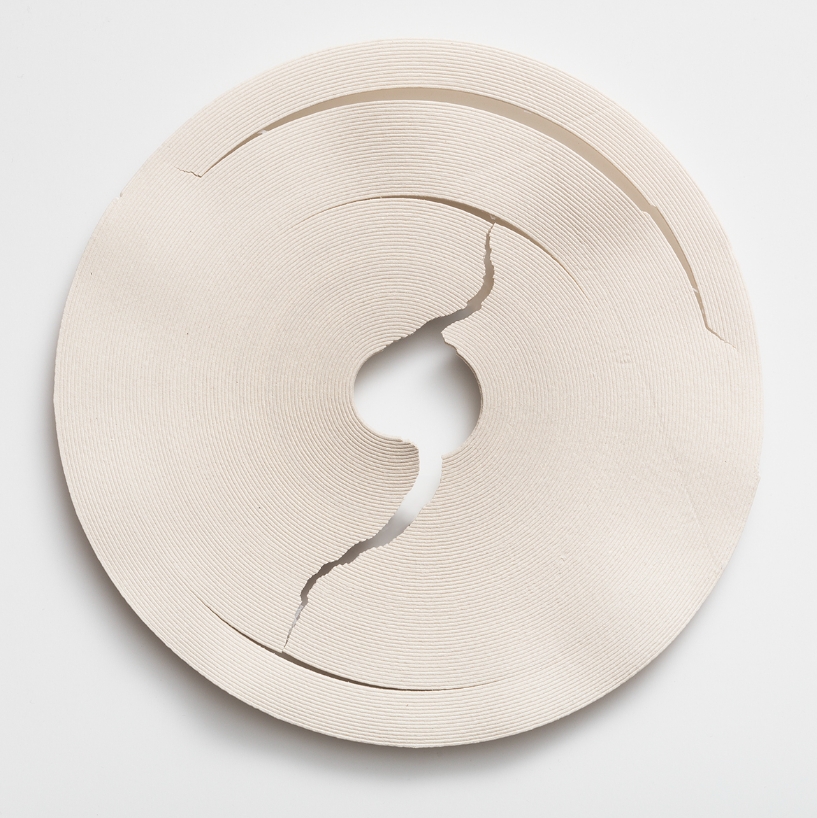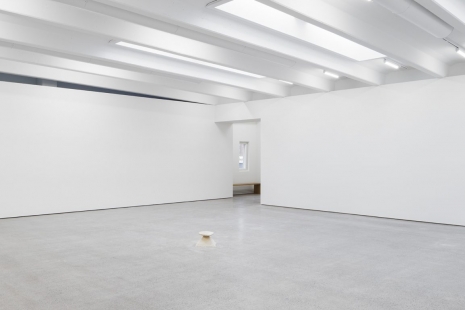‘Timo Tuhkanen: Speculative Sound’ is an installation in the smaller studio space, comprising experimental ceramics and sound. Tuhkanen, who holds a doctorate from the School of Music, Leeds University, is best known as a composer and sound artist and a researcher in these fields, notably running the project Microtonal Music Studios in Helsinki with support from the Kone Foundation. As a researcher he is also affiliated with the Department of Musicology at the University of Turku and with the University of Applied Arts Vienna. In addition he co-directs, with his partner and fellow artist Egle Oddo, the independent exhibition space Myymälä 2 in the center of Helsinki.
In his exhibition, Tuhkanen is showing elements from two ongoing series. In the Shadow of the Spiral (2023) started as an exploration of ceramics as a possible material for musical instruments during a longer residency at the European Ceramic Workcentre in Tilburg, the Netherlands.
It developed into an intense period of learning-by-doing that yielded 68 ceramic spirals of different lengths, designed to amplify sound waves when connected to transducers and proving to be surprisingly supple and resilient.
‘I really knew what I needed to do, and that was to make these many spirals of different sizes and create this forest. I imagined it as a moving forest, a composition of spirals and sound that you could enter and really walk through, and these spirals would shake a bit, like some kind of weird freaky space tree.’
Two of the largest spirals, 250 centimeters tall, are installed standing on the floor of the Kohta studio. In the production process Tuhkanen became fascinated with the pursuit of ‘flexible ceramics’. It may sound like an oxymoron but is a specialised field of materials research that involves infusing regular clay with nano-particles obtained from clay fired at temperatures two or three times higher the customary 1000 centigrades.
To him the enhanced flexibility is mostly of interest because it would prevent the spirals from snapping and breaking under distress and make them more suitable for conducting sound.





